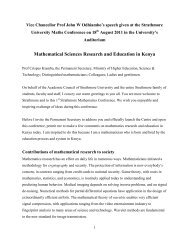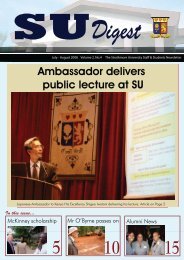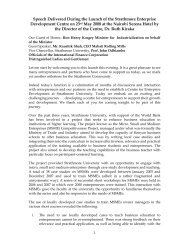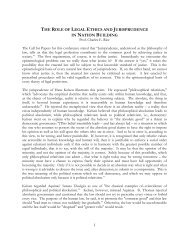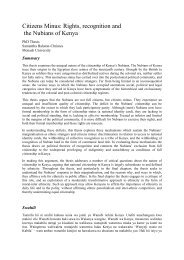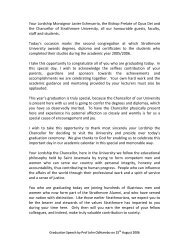Lucy-Gikonyo-paper Nataka-Chakula.pdf - Strathmore University
Lucy-Gikonyo-paper Nataka-Chakula.pdf - Strathmore University
Lucy-Gikonyo-paper Nataka-Chakula.pdf - Strathmore University
- No tags were found...
You also want an ePaper? Increase the reach of your titles
YUMPU automatically turns print PDFs into web optimized ePapers that Google loves.
consideration the need to create brand equity through brand ambassadors who may be<br />
celebrities or the regular customers. This is because recommendations and referrals are the<br />
strongest and cost effective ways of attracting customers to a restaurant for the first time.<br />
Furthermore, those customers who chose a company based on recommendation are likely to<br />
be more loyal and forgiving in case of unintended disappointment in service quality. Hence,<br />
increasing positive word-of-mouth and referrals should be a goal for any organization.<br />
The study noted that a great offer in term of quality service and product, customer care and<br />
consistency are important factors for restaurant patronage. Therefore, management should<br />
ensure that these critical areas are monitored and taken care of at all times. In addition,<br />
management attention and the resources should be directed towards these critical success<br />
factors.<br />
Of particular concern and importance is the concept of consistency. Lack of consistency in<br />
food quality, food quantity, food prices, service and environment may lead to defection of<br />
customers. Management effort should therefore be focused on ensuring that the critical<br />
success factors are managed consistently.<br />
The limitations are a reflected in the research methodology used. A convenience sample<br />
may not be as robust and representative as a different type of sample. In addition, content<br />
analysis is usually regarded as being subjective as it involves individual bias in the<br />
selection of themes, headings, categories and abstractions. Furthermore, critical success<br />
factor methodology is also prone to limitations especially in terms of ambiguousness and<br />
the need to contextualize it in order to derive practical relevance. However, the study also<br />
acknowledges that these are limitations of qualitative methodologies that do not negate the<br />
importance and effectiveness of these methodologies in making sense out of real life<br />
problems. A further limitation is the depth of studies investigating CSF in the hospitality<br />
and restaurant sectors in African countries, and specifically in Kenya. Further research<br />
would be recommended especially of a quantitative nature.<br />
Conclusion<br />
The primary objective of the research was to investigate customer perceptions of<br />
restaurants, focusing on how these restaurants can attract new and retain existing<br />
14





